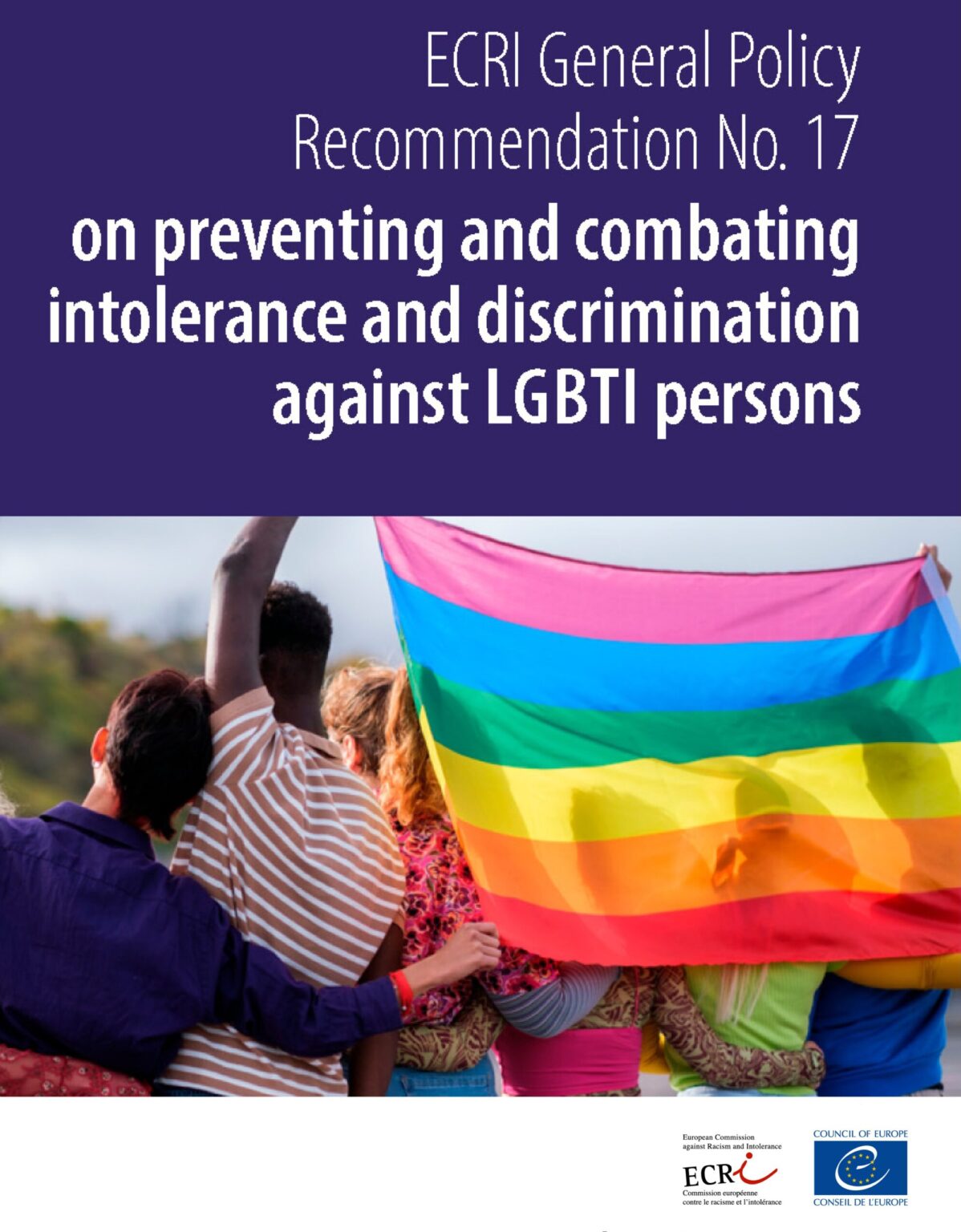European Commission Against Racism and Intolerance Publishes First LGBTI General Recommendations

On 28 September, the European Commission against Racism and Intolerance (ECRI) published their General Recommendations No. 17 (GR No. 17). This is their first ever general comment on LGBTI people. The comment provides insights into preventing and combating intolerance and discrimination against LGBTI people.
TGEU welcomes GR No 17. However, there are a few shortcomings.
Lenny Emson, TGEU Executive Director, comments:
“TGEU welcomes this systematic and specific set of recommendations, building on years of ECRI’s important contributions for LGBTI equality in its country-level work. This much needed collection of measures will be an important yardstick for measures by national authorities and as inspiration for activists alike. Member States will be measured against these standards in the years to come.”
TGEU provided testimony to the Committee. Our testimony spoke to the lived realities of trans people in the Council of Europe region.
What is in the recommendation?
The ECRI is an expert body of the Council of Europe and a unique human rights monitor. They call on Member States to take all possible measures to:
- Facilitate better social inclusion of LGBTI people
- Combat anti-LGBTI hatred.
The ECRI urges authorities to “actively oppose anti-LGBT I hate speech notably through counter-speech”. They continue to call on Member States to ensure their equality bodies work for all trans people. This means they must expressly include gender identity as a protected characteristic in their mandates.
The document underlines the need to recognise LGBTI people who fall into multiple sub-categories, such as someone who is both trans and intersex or someone who is trans and lesbian. It also highlights intersectionality as key. “In the view of ECRI, it is also vital to recognise the rights and needs of LGBTI individuals who suffer intersectional discrimination due to other key aspects of their identity or lived realities, including their ethnic or national background, citizenship, religion, gender, and disability status, or their refugee status or belonging to the Roma or Traveller communities.”
The report also describes the challenges presented by the anti-gender and anti-rights campaigns, especially when such rhetoric comes from national politicians.
What does the ECRI recommend?
The ECRI LGBTI recommendations cover a wide range of issues:
- General principles
- Policies and institutional coordination including national LGBTI equality strategies and action plans
- Private and family life and children’s rights
- Prohibition of conversion practices
- Legal gender recognition and access to gender affirming healthcare
- Intersex people
- Asylum and refugees.
Some of the measures they recommend are:
- Awareness raising campaigns or programmes on LGBTI equality
- Training for media professionals
- Preventing and combating LGBTI-phobia in and through education
- Inclusive recruitment and workplaces
- Codes of conduct in the political sphere and media sector.
They also highlight rights and institutions that are particularly relevant for LGBTI people. These include:
- Freedom of expression
- Freedom of assembly and freedom of association
- Equality bodies and civil society
- Investigation, prosecution, and procedural law.
TGEU especially welcomes the call for:
- More reliable disaggregated data
- Comprehensive anti-discrimination, anti-LGBTI hate speech, and anti-LGBTI hate crime laws
- The prohibition of conversion practices
- The inclusion of gender identity in the mandate of equality bodies.
Emson adds:
“The strong emphasis on the complex realities LGBTI people from further marginalised communities face is certainly a much needed addition to the Council of Europe’s Committee of Ministers more general set of LGBTI Recommendations from 2010 (CM RC (2010)5).”
What could be strengthened?
These recommendations are an important baseline. However, TGEU encourages the expert members of ECRI to carefully listen to the country-specific needs of the community. This is particularly necessary when formulating country-specific recommendations. These might go beyond the identified standards in this document.
Additionally, TGEU calls for the addition of recommendations to:
- Protect and support trans people in detention
- Support and recognition of trans parents
- Ensure legal gender recognition is based on self-determination
- Measures to hold Member States accountable for accessible asylum procedures. This must also account for the unique needs of LGBTI asylum seekers.
What is the European Commission against Racism and Intolerance (ECRI)?
The European Commission against Racism and Intolerance (ECRI) is a unique human rights monitoring body of the Council of Europe. They specialise in questions related to the fight against racism. This includes discrimination on grounds of race, ethnic/national origin, colour, citizenship, religion, language, sexual orientation, gender identity, and sex characteristics, as well as xenophobia, antisemitism, and intolerance in Europe.
They regularly visit all Member States and prepare reports and issue country-specific recommendations. The pan-European Commission is composed of independent members and set up by Heads of State and Governments.